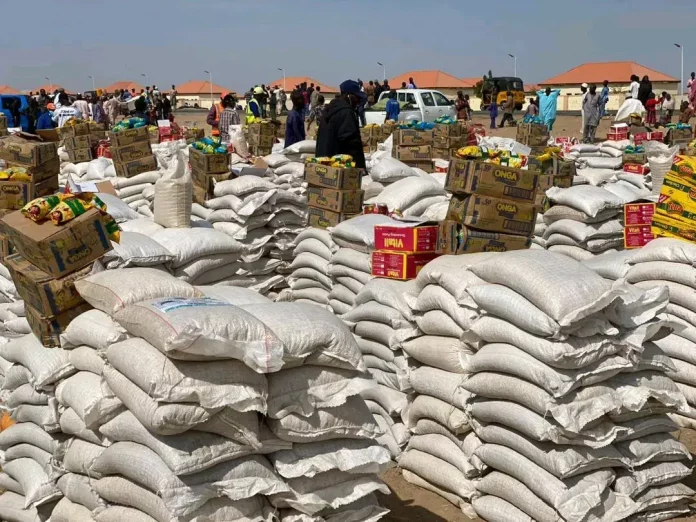
The National Bureau of Statistics (NBS) has revealed that Borno, Bayelsa, and Taraba states recorded the highest year-on-year increases in food prices in May 2025, despite the country’s overall inflation rate easing for the second month in a row.
This was disclosed in the NBS’s latest Consumer Price Index (CPI) report stating that Borno State led with a staggering 64.36% rise in food inflation on a year-on-year basis, followed by Bayelsa (39.85%) and Taraba (38.58%).
The surge in Borno’s food prices reflects the ongoing impact of insecurity in the region, which has disrupted farming activities, displaced communities, and intensified humanitarian crises.
In contrast, Katsina, Rivers, and Kwara recorded the slowest year-on-year food inflation rates at 6.90%, 9.18%, and 11.31% respectively.
The report stated:
“In May 2025, food inflation on a year-on-year basis was highest in Borno (64.36%), Bayelsa (39.85%), and Taraba (38.58%), while Katsina (6.90%), Rivers (9.18%), and Kwara (11.31%) recorded the slowest increases.”
Nationally, the food inflation rate dropped slightly to 21.14% in May from 21.26% in April—reflecting a 0.12 percentage point decrease. However, on a month-on-month basis, food inflation rose to 2.19% from 2.06% in April.
“This increase can be attributed to rising average prices of key food items such as yam, ogbono (wild mango seed), cassava tubers, maize flour, fresh pepper, and sweet potatoes,” the NBS noted.
The agency also explained that the sharp drop in annual food inflation compared to May 2024 (which was 40.66%) is largely due to a change in the CPI base year.
Meanwhile, Nigeria’s headline inflation rate fell to 22.97% in May 2025 from 23.71% in April, marking the second consecutive month of decline and a 0.74 percentage point reduction.
The report added:
“On a year-on-year basis, the May 2025 headline inflation rate was 10.98 percentage points lower than the 33.95% recorded in May 2024.”
This consistent drop, while partly technical due to base-year adjustments, may offer a glimmer of hope for Nigerian households struggling with rising living costs—particularly food, which remains the major driver of inflation.



